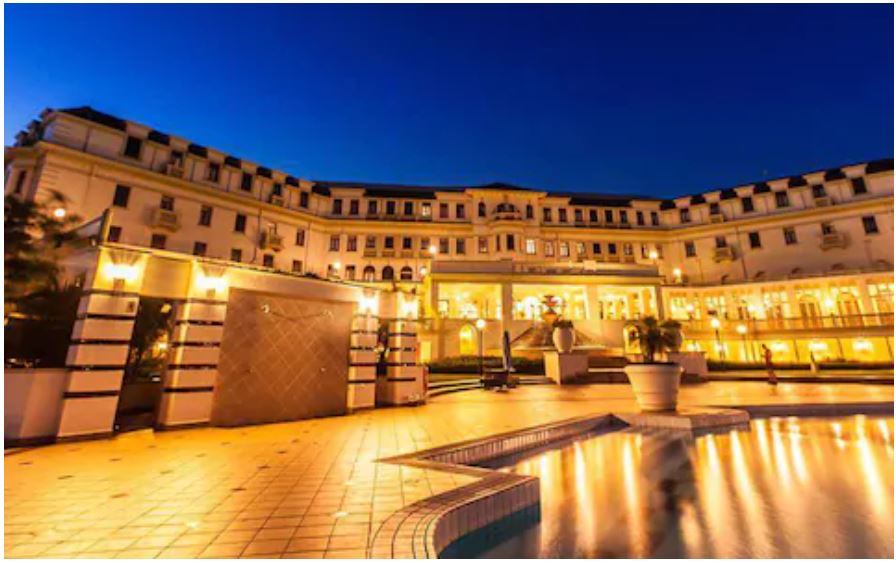by Seth Onyango
Affluent domestic and overseas tourists are driving a surge in high-end hotels in Africa, where a single night’s stay can cost more than US$3,000.
Over 396 luxury hotels totaling 75,364 rooms are currently in development across the continent, according to the 2024 W Hospitality Group’s development pipeline report.
“The top 10 brands account for about half of all chain hotels and resorts under construction in Africa, with the top 5, being Hilton, Radisson, Marriott Hotels & Resorts, Protea Hotels and Four Points by Sheraton, all having similar numbers,” it says.
“Three of those top 5 brands are owned by Marriott International, who also have Courtyard by Marriott at number 9.”
Marriott, Hilton, and Accor Radisson have 138, 72, and 70 hotels under construction, respectively, with Radisson building 35, some nearing completion.
Meanwhile, IHG has 30, Kerten 13, TUI 12, Hyatt 11, Wyndham 10 and Meliá International 5 hotels in progress, making Africa a hotbed of new luxury hotels.
Despite leading in pipeline numbers, Egypt has the lowest on-site room percentage due to its “young” pipeline. Of 109 deals, half were signed in 2021 or later, with 19 last year, accounting for 20% of the total.
“Of the top 10 countries, Ethiopia has the highest ratio of rooms under construction, (although several have stalled), followed by Tunisia and Algeria,” W Hospitality notes.
While Cape Verde has a low on-site percentage, two Spanish chains, Barceló and Meliá, have resorts under construction across the islands.
Luxury hotels remain a trophy investment and more investors in Africa’s ultra-luxury accommodation units are confident this new supply of hotels can be soaked up by increasing demand.
Globally, the luxury hotel market has seen substantial growth fueled by rising demand for premium accommodations, with the global market expected to hit US$115.8 billion by 2025. In Africa, growing interest in luxury units from giant hotel chains coincides with the rebound of the tourism sector after the global pandemic.
For instance, Kenya’s earnings from tourism surged by 32% to 352.5 billion shillings ($2.7 billion) last year, marking the highest revenue since the onset of the COVID-19 pandemic. A stay at JW Marriott’s Masai Mara Lodge can cost patrons more than US$3,000 a night.
The leading sources of Kenyan tourism are the US, Uganda, Tanzania, the UK, and India.
As in other emerging markets, burgeoning wealth among Africa’s middle class is a major driver of the luxury travel sector, with wealthy individuals craving singular and lasting adventures. That is precisely what Africa’s luxury hotels offer.
This demographic is prepared to spend on exceptional accommodation, tailor-made services and unparalleled experiences, driving a boom in high-end hospitality across the continent.
Adding to this momentum, the influence of social media and the desire for unique and Instagram-worthy experiences have also significantly fueled the demand for Africa’s luxury accommodation options, aligning with the tastes of international and domestic travelers seeking exceptional stays across the continent.
bird story agency
A surge in affluent domestic and international tourists is boosting the luxury hotel market in Africa, where a single night's stay can exceed US$3,000. According to the 2024 W Hospitality Group's development pipeline report, 396 luxury hotels with over 75,364 rooms are currently being developed across the continent. Major brands like Hilton, Radisson, Marriott Hotels & Resorts, Protea Hotels, and Four Points by Sheraton are leading, with Marriott International dominating with four brands in the top 10 list.
Marriott, Hilton, and Accor Radisson are constructing 138, 72, and 70 hotels, respectively, with Radisson nearing completion on 35. IHG, Kerten, TUI, Hyatt, Wyndham, and Meliá International are also notable contributors. Egypt, while leading in development, has many new projects with a low on-site room percentage. Ethiopia, Tunisia, and Algeria have high construction activity, though some projects have stalled. Cape Verde also has multiple projects by Spanish chains Barceló and Meliá.
Luxury hotels are viewed as lucrative investments driven by growing demand from Africa's rising middle class and global tourists. The global luxury hotel market is projected to reach US$115.8 billion by 2025. Post-pandemic, African tourism is rebounding, with Kenya's tourism earnings increasing by 32% to $2.7 billion last year. Major tourism sources for Kenya include the US, Uganda, Tanzania, the UK, and India. The middle class’s increasing wealth and desire for unique experiences also stimulate this sector's growth, amplified by social media trends.





